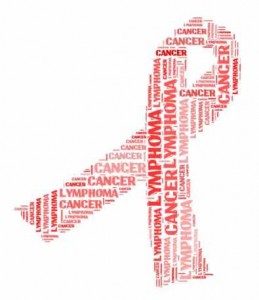-
Health & Wellness
Quality of Life at Diagnosis May Predict Survival for Patients With Aggressive Lymphoma
San Francisco -- Self-reported quality of life among patients diagnosed with aggressive lymphoma can predict overall survival and event-free survival, a Mayo Clinic study has found.  The results were presented today at the 56th American Society of Hematology annual meeting, in San Francisco.
The results were presented today at the 56th American Society of Hematology annual meeting, in San Francisco.
"We studied a large sample of patients with aggressive lymphoma and found that their baseline quality of life is predictive of overall survival and event-free survival, even after adjustment for known factors related to survival," says the study's lead author, Carrie Thompson, M.D., a hematologist at Mayo Clinic. "Our findings provide evidence that patient-reported outcomes are as important as other more objective International Prognostic Indicators (IPI) and that quality of life should be assessed at diagnosis as a prognostic factor in patients with aggressive lymphoma." IPI is a clinical tool used to help predict the prognosis of patients with aggressive lymphoma.
MEDIA CONTACT: Joe Dangor, Mayo Clinic Public Affairs, 507-284-5005, newsbureau@mayo.edu
Journalists: Soundbites with Dr. Thompson are available in the downloads.
Dr. Thompson and her colleagues followed 701 patients with aggressive lymphoma who completed baseline quality-of-life questionnaires between September 2002 and December 2009. Baseline quality of life was measured using the Functional Assessment of Cancer Treatment-General scale (FACT-G), which measures four quality-of-life domains: physical, social/family, emotional and functional well-being. Measures also included a one-question linear analogue self-assessment for measuring overall quality of life and a linear analogue self-assessment measuring spiritual well-being.
Patients who did not complete at least 80 percent of the questions were excluded from the study. Patients ranged from 18 years to 92 years old with a median age of 62 years. Fifty-eight percent of patients were male. Forty-seven percent of patients reported baseline quality of life before receiving therapy and 53 percent reported baseline quality of life after initiation of therapy. Sixty percent of patients had a diagnosis of diffuse large B-cell lymphoma, 14 percent mantle cell lymphoma, 11 percent grade III follicular lymphoma, 13 percent T-cell lymphoma, and the remainder of patients were diagnosed with other subtypes of lymphoma. At median follow-up of 71 months, 316 patients had experienced an event, such as the progression of their disease and 228 patients had died.
The median overall FACT-G total score was 83 and the median scores on the functional well-being, physical well-being, emotional well-being, and social/family well-being were 18, 22, 18 and 25, respectively. Six percent of patients reported a clinically deficient quality-of-life score on the FACT-G, defined as less than 50 on a 0–100 scale. When comparing quality-of-life scores between patients who were on active therapy to patients who were not yet treated, physical well-being, functional well-being and total FACT-G were lower in patients who were already on active treatment.
Dr. Thompson and her colleagues found that all quality-of-life measures but emotional well-being were significantly associated with overall survival. They also found that all measures but the linear analogue self-assessment measuring spiritual well-being remained significant after adjusting for IPI and the non-Hodgkins lymphoma subtype. "Associations were stronger for overall survival than event-free survival," Dr. Thompson says. For overall survival, the strongest associations were with total FACT-G and functional well-being.
Dr. Thompson and her colleagues also found that the one-question linear analogue self-assessment for measuring overall quality of life was associated with overall survival. "Patients with a clinically deficient quality of life, defined as less than 50 on the FACT-G 0-100 scale, had a median overall survival of 59 months compared to 121 months for patients with baseline quality-of-life score greater than 50," says Dr. Thompson. In a sensitivity analysis, Dr. Thompson and her colleagues modeled raw quality of life for overall survival and event-free survival in the subset of patients whose quality of life was assessed prior to treatment; in that subset, hazard ratios were consistent with the adjusted quality-of-life hazard ratio in all patients.
Co-authors include Matthew Maurer, M.S.; Cristine Allmer; Kathleen Yost, Ph.D.; and James Cerhan, M.D., Ph.D., of Mayo Clinic; and Brian Link, M.D., of the University of Iowa. Funding for the study was provided by the University of Iowa/Mayo Clinic Lymphoma Specialized Program of Research Excellence (SPORE) Grant [CA P50 CA97274], Mayo Clinic Robert D. and Patricia E. Kern Center for the Science of Health Care Delivery, the Predolin Foundation, and the Arnold and Kit Palmer Benefactor Award.
About Mayo Clinic Cancer Center As a leading institution funded by the National Cancer Institute, Mayo Clinic Cancer Center conducts basic, clinical and population science research, translating discoveries into improved methods for prevention, diagnosis, prognosis and therapy. For information on cancer clinical trials, call 1-855-776-0015 (toll-free). ###
About Mayo Clinic Mayo Clinic is a nonprofit organization committed to medical research and education, and providing expert, whole-person care to everyone who needs healing. For more information, visit http://www.mayoclinic.org/about-mayo-clinic or https://newsnetwork.mayoclinic.org.
MEDIA CONTACT: Joe Dangor, Mayo Clinic Public Affairs, 507-284-5005, newsbureau@mayo.edu







